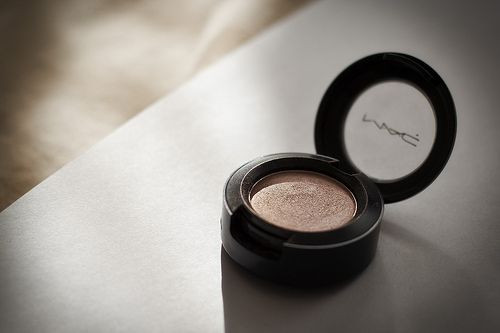Counterfeit MAC Cosmetics May Pose Health Risk: 'It Can Break You Out, Cause Irritations, And Allergies'

Spotting your favorite high-end cosmetics line for a fraction of the cost could be too much of a beauty deal to resist. But paying dangerously low prices to unauthorized retailers that sell popular brands, such as MAC, could end up costing you much more than you bargained for, and you could end up paying with your health.
The U.S. Department of Homeland Security (DHS) is currently investigating major counterfeit make-up manufacturing rings that are selling products containing high concentrations of various metals and carcinogenic ingredients normally banned from use in cosmetics. Applying these ingredients to the skin could lead to long-term health issues.
Holly Whitis, a Florida-based MAC make-up artist told ABC Action News that counterfeit products are dangerous because the ingredients in the make-up are typically unknown. “It could break you out. It could cause irritations [and] allergies that you may not know that you have,” she said.
MAC products tested by the ABC I-Team were on sale in the Tampa Bay-area flea markets, Craig’s List, and even on social media networking sites, such as Facebook. DHS Deputy Special Agent in Charge Shane Folden told the news outlet that many of the products sold online are not real. While Folden says he can’t talk about ongoing investigations, he confirmed that he and his agents are working to eliminate the major counterfeit make-up rings in the U.S.
One thing most counterfeit MAC cosmetics have in common is that they’re from China, and that they could cause severe issues on the skin. Cosmetics sold in the U.S. are dermatologically tested for use on the skin, whereas the fake cosmetics do not go through an inspection routine, and can often contain harmful ingredients that cause allergic reactions and rashes, among other things.
Beauty consumers should be careful about whether they’re buying fake or real cosmetics because of their heavy metal content. A 2008 study found that heavy metals in cosmetics can cause skin allergies through percutaneous absorption on the skin. The use of these metals for color and pigments in makeup has been linked to detrimental health outcomes with continuous use — outcomes that include cancer, reproductive and developmental disorders, neurological problems, and contact dermatitis.
Using counterfeit cosmetics increases this health risk for people who wear beauty products. In a separate investigation on counterfeit cosmetics conducted by the Daily Mail, a counterfeit MAC eyeliner bought on Amazon was found to contain 46 times the acceptable level of copper. Such high levels of copper would not be allowed for use, as it can cause reactions, such as nausea, vomiting, headache, and dizziness.
A Florida teen recently ordered fake MAC blush from the popular online retailer, Amazon. “I ordered a blush from the Hello Kitty collection,” she said on her online fashion blog, according to ABC. “I was like ok, it's gonna be real for $10. It wasn't. I've never had an issue with Amazon before, so [I] really didn't expect anything.”
Amazon does not tolerate sellers who sell counterfeit products on their website, but allowing third parties to sell merchandise has made it difficult to exert control over the items sold on its site.
While it has become increasingly difficult to spot the real thing from the fake, differences in bar codes, product color labels, and even the shine of the metal can help spot these counterfeit products.
Folder’s rule of thumb on spotting counterfeit products sold on the streets and online is: “Generally, if something's priced too good to believe it, it's generally too good to believe it.”
To learn more on how to spot counterfeit MAC cosmetics, click here.



























